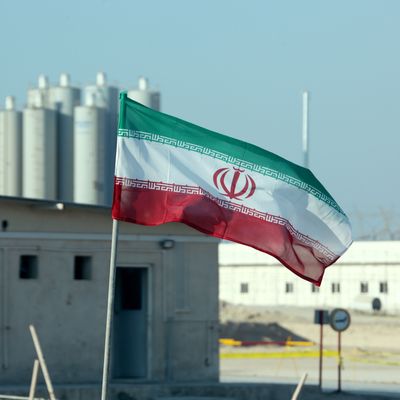
Iran announced on Sunday that it will no longer honor its commitments from the 2015 nuclear deal and said it has removed all limits on its uranium-enrichment program. The declaration came after the regime officials held an emergency meeting to reevaluate Iran’s nuclear program after President Trump ordered the assassination of the country’s top military leader, Qasem Soleimani, in a drone strike in Baghdad on Thursday. Iran also stressed in a statement that it was willing to resume honoring the deal and reopen access to the International Atomic Agency, but only after sanctions against the country were removed and it was sure its interests would be secure — i.e., that the U.S. would fulfill its commitment to the deal after President Trump unilaterally decided to abandon it.
In 2018, Trump withdrew from the deal and made the unsubstantiated claim that Iran had violated its terms. America’s JCPOA partners in Europe disagreed and tried, but ultimately failed, to preserve the agreement thanks to the numerous obstacles Trump and his Iran-hawk advisers erected as part of their maximum-pressure campaign against Tehran.
What followed was a steady escalation of tensions between the U.S. and Iran as the U.S. worked to isolate Iran and damage its economy, while Iran stepped up its aggression in an effort to force the U.S. to return to the deal. Iran launched cyberwar operations, exchanged drone shoot-downs with the U.S., helped make Yemen a humanitarian disaster zone via a proxy war with Saudi Arabia, targeted ships in the Strait of Hormuz, and launched an attack on a critical Saudi oil facility. Iran also escalated pressure on the U.S. in Iraq, where Iran-backed militias could easily target U.S. forces. When a U.S. civilian contractor in Iraq was killed on December 27 in a rocket attack by one of those militias, it set off a chain of events that culminated in Trump’s shocking decision to target Soleimani.
While President Trump and his administration have contributed plenty of bluster and confusion to these affairs, they have maintained that everything they have done has been to force the regime in Tehran to abandon its nuclear program and cease its efforts to promote violence in the Middle East, as well as — perhaps — spur some kind of political evolution within Iran. Instead, the Trump team’s efforts have had the opposite effect. Despite its crippled economy, Iran has never been more involved in the affairs and conflicts of its Middle East neighbors, or had more influence over them — and it and the U.S. are closer to war than they’ve been since the 1979 hostage crisis. From the looks of the massive pro-Soleimani demonstrations in multiple cities over the weekend, killing Iran’s most infamous general may have inspired national solidarity and bolstered the country’s hardliners just weeks after the regime killed more than 1,500 people during an unprecedented wave of protest throughout the country. And Iran has not only not abandoned its nuclear program, it has now resumed it in full.
It’s not clear if President Obama’s landmark nuclear deal with Iran is now totally dead, or just mostly dead, but the avalanche-like failure of Trump’s Iran policy has never seemed more unstoppable.






























